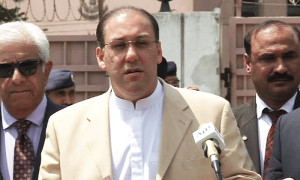360turn
Minister (2k+ posts)
The article is proof of reality how an secretary edits excel facts or statistics to benefit her own point across the board meeting. The recent articles on Indian accountants capabilities to change variables in Indian economy to lure in much needed international investment goes to prove the article today by Bloomberg. How can you have exageration of Indian economy while no new cities are born but China is doing worse in all technology sectors while having the largest export around the globe?
Here's How Much Technology Is Messing Up Our Most Important Measurements of the Economy
By Bloomberg News.
Productivity has slowed over the past decade, spurring heated debate about the limits of innovation and U.S. growth potential. New research from Goldman Sachs economists suggests another culprit — mismeasurement of how much technology adds to economic output — could be the major driver behind the weakness.
Jan Hatzius and Kris Dawsey find that difficulty in gauging technology improvements may be cutting gross domestic product reading 0.7 percentage.
The government underestimates how quickly semiconductor, computer and special-purpose IT hardware prices are falling, reducing growth estimates by 0.2 point once the figures are adjusted for inflation, they said. It's also difficult to measure the value of software and digital content as quality improves and new products come on line, weakening GDP data by another 0.5 point.
Because productivity estimates come from economic growth divided by hours worked, the GDP markdown caused by these issues could "indeed account for most'' of the 0.75 percentage point decline in consensus estimates of the trend in productivity over the past decade, they wrote. While the Goldman economists say their estimates are "highly approximate and uncertain," it's a big deal if difficulty in counting tech advances, rather than a genuine slowdown, is the driving force behind sub-par productivity gains because they affect everything from growth expectations to future monetary policy.
If productivity is being assessed incorrectly and the economy is capable of stronger growth, the medium-term real equilibrium federal funds rate — the level required to prevent the economic expansion from overheating — may be higher than many believe.
What's more, the findings suggest that inflation is even lower than officially calculated and call into question the accuracy of price-adjusted GDP figures. The measured growth pace of 2.2 percent over the past five years might be more like 3 percent, Hatzius and Dawsey find. That could explain why employment growth in recent years has looked much better than many economists would expect, given weak output.
Fed policy makers are attuned to the issues that the Goldman economists highlight. Speaking in Los Angeles earlier this month, San Francisco Fed President John Williams said there's probably a "case to be made" that software and technology mismeasurement is affecting real GDP, productivity and inflation.
"I don't know how big of an effect that is — I think the experts really need to dig into that," Williams said. "It's a big issue that we need to get a lot more information on.''
Even so, Hatzius and Dawsey write that it'll probably be some time before the debate becomes material to monetary policy-making. For now, there's no good methodology for adjusting inflation data to bring it in line with tech-industry reality.
"It is probably still too early to expect a significant impact from the productivity measurement debate on monetary policy,'' the economists wrote, "except to reinforce the Fed's long-standing view that the performance of the job market indicators is the most reliable measure of real economic activity."
Source
Here's How Much Technology Is Messing Up Our Most Important Measurements of the Economy
By Bloomberg News.
Productivity has slowed over the past decade, spurring heated debate about the limits of innovation and U.S. growth potential. New research from Goldman Sachs economists suggests another culprit — mismeasurement of how much technology adds to economic output — could be the major driver behind the weakness.
Jan Hatzius and Kris Dawsey find that difficulty in gauging technology improvements may be cutting gross domestic product reading 0.7 percentage.
The government underestimates how quickly semiconductor, computer and special-purpose IT hardware prices are falling, reducing growth estimates by 0.2 point once the figures are adjusted for inflation, they said. It's also difficult to measure the value of software and digital content as quality improves and new products come on line, weakening GDP data by another 0.5 point.
Because productivity estimates come from economic growth divided by hours worked, the GDP markdown caused by these issues could "indeed account for most'' of the 0.75 percentage point decline in consensus estimates of the trend in productivity over the past decade, they wrote. While the Goldman economists say their estimates are "highly approximate and uncertain," it's a big deal if difficulty in counting tech advances, rather than a genuine slowdown, is the driving force behind sub-par productivity gains because they affect everything from growth expectations to future monetary policy.
If productivity is being assessed incorrectly and the economy is capable of stronger growth, the medium-term real equilibrium federal funds rate — the level required to prevent the economic expansion from overheating — may be higher than many believe.
What's more, the findings suggest that inflation is even lower than officially calculated and call into question the accuracy of price-adjusted GDP figures. The measured growth pace of 2.2 percent over the past five years might be more like 3 percent, Hatzius and Dawsey find. That could explain why employment growth in recent years has looked much better than many economists would expect, given weak output.
Fed policy makers are attuned to the issues that the Goldman economists highlight. Speaking in Los Angeles earlier this month, San Francisco Fed President John Williams said there's probably a "case to be made" that software and technology mismeasurement is affecting real GDP, productivity and inflation.
"I don't know how big of an effect that is — I think the experts really need to dig into that," Williams said. "It's a big issue that we need to get a lot more information on.''
Even so, Hatzius and Dawsey write that it'll probably be some time before the debate becomes material to monetary policy-making. For now, there's no good methodology for adjusting inflation data to bring it in line with tech-industry reality.
"It is probably still too early to expect a significant impact from the productivity measurement debate on monetary policy,'' the economists wrote, "except to reinforce the Fed's long-standing view that the performance of the job market indicators is the most reliable measure of real economic activity."
Source
- Featured Thumbs
- http://assets.bwbx.io/images/iSHuFpJBKAWE/v1/-1x-1.jpg
Last edited by a moderator:

































